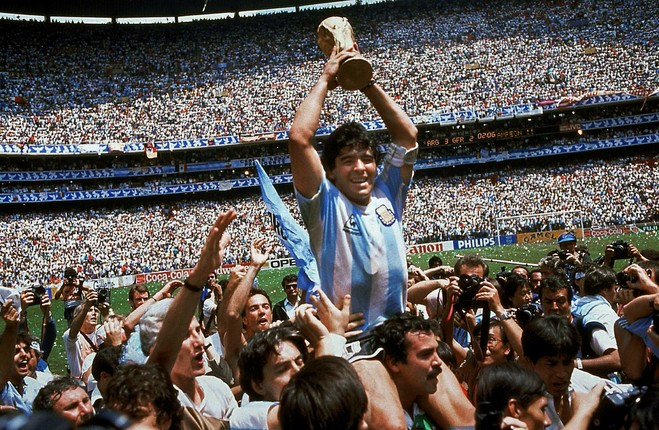THE FOLLOWING IS an extract from Angels With Dirty Faces: The Footballing History of Argentina by Jonathan Wilson.
Head North-East along Sarmiento from the statue of Garibaldi on Plaza Italia, bearing left across the patchy grass towards Plaza Holanda.
The track around the lake in its centre is marked off every 100 metres for the benefit of joggers, who chug around, dodging rollerbladers and any geese that aren’t attacking pedalos on the water. Skirt the path and head between the trees and you reach Avenida Figueroa Alcorta: if you turned left and followed the road you’d go past the rowing lake and the hippodrome before arriving at El Monumental.
But if you cross Alcorta, onto the springier grass that surrounds the plan−etarium, you’ll find, beside green wooden boards detailing cycling routes around the city, an unremarkable white−grey stone perhaps five feet in height. The sides are daubed with red paint. On the back, in blue, is scrawled ‘CMB 2011’ and around that, in black paint, are other squiggles.
The front, though, is free of graffiti and bears an inscription proclaiming this to be a ‘lugar historico’ – a ‘historic site’. There is another, much smaller, stone set at the base of the main one.
If it ever carried any writing, it has long since been worn away. The monument was erected by the Comisión Nacional de Museos y Lugares Historicos: ‘aquí,’ reads the central legend, ‘se instaló el primo campo de deporte del Buenos Aires Cricket Club 8−XII−1864’ – ‘here was established the first sports ground of the Buenos Aires Cricket Club, 8 December 1864’.
Curiously, given the relative interest in the sports in Buenos Aires, it doesn’t mention football at all, yet it was there, on 20 June 1867, that 16 members of the city’s business community — all from Britain apart from William Boschetti, who had been born in St Lucia – met to contest the first organised game of football ever played on Argentinian soil.
The Football Association’s Laws of the Game, drawn up in December 1863, had arrived in Buenos Aires and been published in the English−language newspaper the Standard in early 1867.
It served a population that, by 1880, had swelled to 40,000, the largest British (or, rather, British and Irish, as the majority of that number were from what is now the Republic of Ireland) population in any country that was not part of the Empire. So significant was the British influence that it could at times feel as though Argentina was part of the Empire, as a headline in The Times had declared it to be in 1806.
The British ran the banking system, developed the railway and exported hide, wool and
meat; at the time, Britain was by some margin Argentina’s largest trading partner.
The British in Argentina had done what the British did every where, creating a miniature version of home, setting up schools, hospitals, churches and sporting clubs. Initially those clubs tended to be focused on cricket, tennis and, given the fine horses available,
polo, but some of their members must have played football of a sort at school or university.
As early as 1840, meanwhile, British sailors had been playing some kind of football on the docks. It was a practice that seems to have provoked bewilderment among locals, as demonstrated by a report in La Razón that doubtfully explained that the pastime ‘consisted of running around after a ball’.
Angels With Dirty Faces: The Footballing History of Argentina by Jonathan Wilson is published by Orion. More info here.
The42 is on Instagram! Tap the button below on your phone to follow us!
